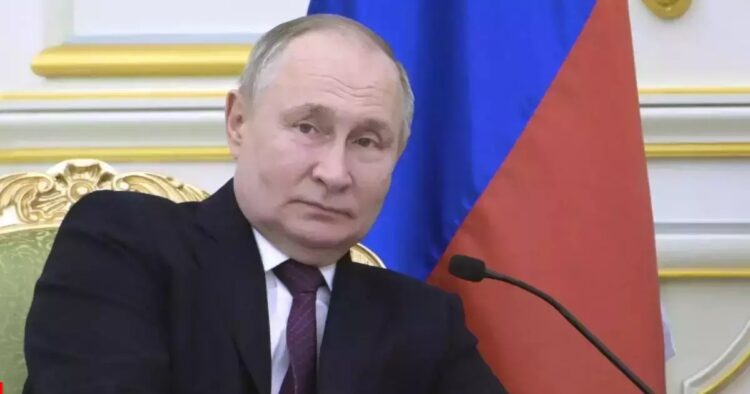Vietnam’s decision to postpone a meeting with the European Union’s top official on Russian sanctions has stirred tensions with the EU. The delay, attributed to the Vietnamese leadership’s busy schedule, comes as Russia’s President Vladimir Putin is potentially planning a visit to Hanoi.
Vietnam, known for its pursuit of a neutral foreign policy, has refrained from condemning Russia’s actions in Ukraine. This stance has drawn criticism from Western nations who perceive it as too favorable towards Moscow.
The EU’s special envoy for sanctions, David O’Sullivan, had planned to meet Vietnamese officials next week but was met with a request for postponement. Vietnamese authorities have suggested July as an alternative date, citing scheduling conflicts.
Sources indicate that the delay may be linked to preparations for Putin’s possible visit to Vietnam. Concerns were raised that discussions with the EU envoy could impact the Russian leader’s visit adversely.
Reacting to the postponement, the EU’s diplomatic delegation in Hanoi expressed disappointment and stated that they are in talks with Vietnamese authorities to reschedule the meeting.
Vietnam’s foreign ministry acknowledged discussions with the EU regarding a new meeting date and remained tight-lipped about Putin’s potential visit, promising to share information at an appropriate time.
Vietnamese leaders have extended multiple invitations to Putin in recent months, despite the International Criminal Court’s warrant against him for alleged war crimes in Ukraine. Vietnam, however, is not a member of the ICC.
Reports from Russian media suggest that Putin has accepted the invitation, and a visit is expected to be finalized after his presidential inauguration on May 7.
Russia holds significant impact in Vietnam, being the largest arms supplier and a key player in exploiting gas reserves in the South China Sea, an area disputed by China.
Meanwhile, the EU, a crucial trading partner for Vietnam, has imposed extensive sanctions on Russia due to its involvement in the conflict in Ukraine.
David O’Sullivan’s role involves ensuring compliance with EU sanctions, particularly in preventing countries from aiding Russia. Despite suspicions, there’s no evidence of Vietnam providing assistance to Russia amidst the conflict in Ukraine.
Detection of any potential trade breaches between Vietnam and Russia, especially involving small components like chips, remains challenging for diplomats.
ALSO READ: “Bharat-EU Security Talks in Delhi: Strengthening Defense Cooperation”

















Comments